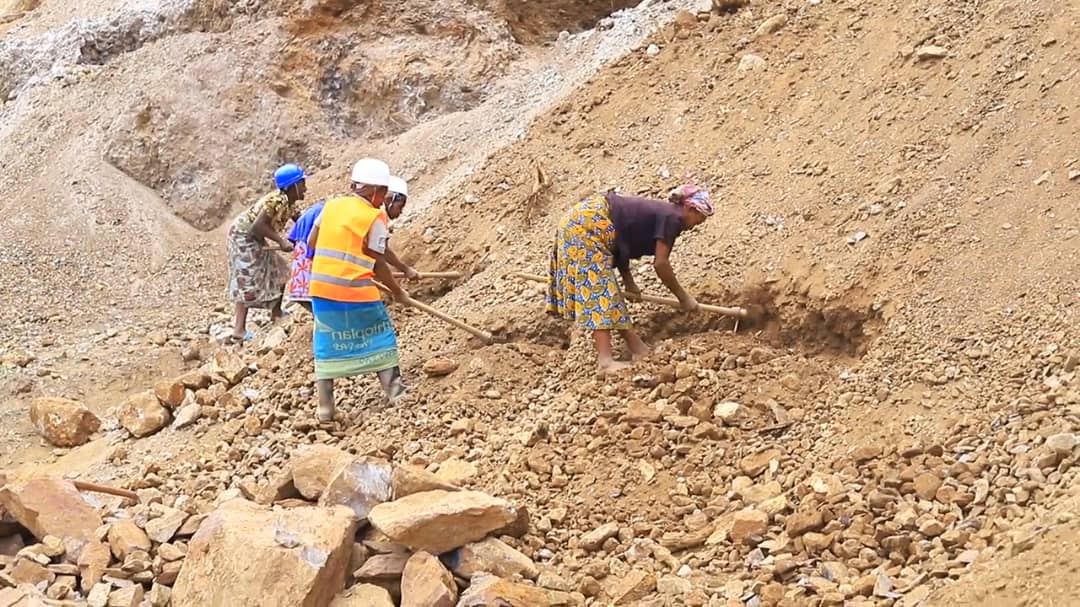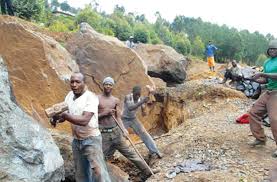Deep in the rugged terrains of Bukimbiri County, Kisoro, and Rubanda districts, artisanal miners toil tirelessly, braving treacherous conditions in search of iron ore. However, their labour yields little reward as they face crippling challenges, including low prices, lack of market access for their raw materials, and perilous working conditions.
A visit to some of the mining sites revealed miners using rudimentary tools like hoes and hammers to extract iron ore from deep within the soil. At Karukara iron ore mining site, 65-year-old Kedress Tungasirwe, an artisanal miner from Rwara village in Rubanda District, shared her story.
A mother of seven, Kedress treks 20 kilometres daily to reach the site after tending to her household chores. Speaking to our reporter, Kedress narrated that extreme poverty, hunger, and mounting debts forced her into mining.
However, she lamented that the hard work often feels futile due to poor returns. “When we measure 40 trips, we only earn Shs400,000 — a meagre income that doesn’t justify our efforts,” she explained.

With Uganda’s iron ore export ban in place, Kedress worries about returning to poverty if markets remain inaccessible. She appealed to the government to secure alternative markets so that artisanal miners like herself can continue earning a livelihood.
Other miners, including Deo Monday, Sylvia Mbonye, and Catherine Mukanoniri, echoed similar concerns. Low pricing, they said, remains their biggest challenge. “Currently, a trip of iron ore sells for Shs80,000. Since we don’t know the official pricing, we just sell to survive,” they said.
They also highlighted the dangers of mining, including frequent accidents caused by inadequate equipment and unsafe working conditions.
Dr Analysis Kabatereine, chairperson of the Kigezi Iron Ore Association, which represents over 1,000 artisanal miners, noted that miners have limited income despite their hard work.
He urged the government to establish a stable market for raw materials to boost production. “There is only one exporter, and our concern is that if this exporter stops operating, there will be no market for our iron ore. This would devastate artisanal miners,” Kabatereine stated.
Eng Jack Alberto Mihigo, a mining expert, emphasised the vital role of artisanal miners in the sector, noting their contribution to economic growth in districts like Kabale, Rubanda, and Kisoro.
However, he acknowledged that the iron ore market is under threat due to reliance on only three exporters. “Banning exports can be beneficial, but the government must implement it thoughtfully to ensure the sector thrives,” Mihigo advised.
Efforts to obtain a comment from the Ministry of Energy and Mineral Development were unsuccessful.
In 2022, Uganda enacted the Mining and Minerals Law, which for the first time incorporated regulations for artisanal and small-scale mining (ASM). The law includes provisions for responsible mining practices, addressing health and safety, gender equality, and environmental protection.
In 2021, the government suspended the mining and export of raw iron ore. Since then, most miners sell their ore to Tororo National Cement Company, from where it is exported to Devki Group in Kenya.
Currently, 90% of the mined iron ore is transported to Kenya.

